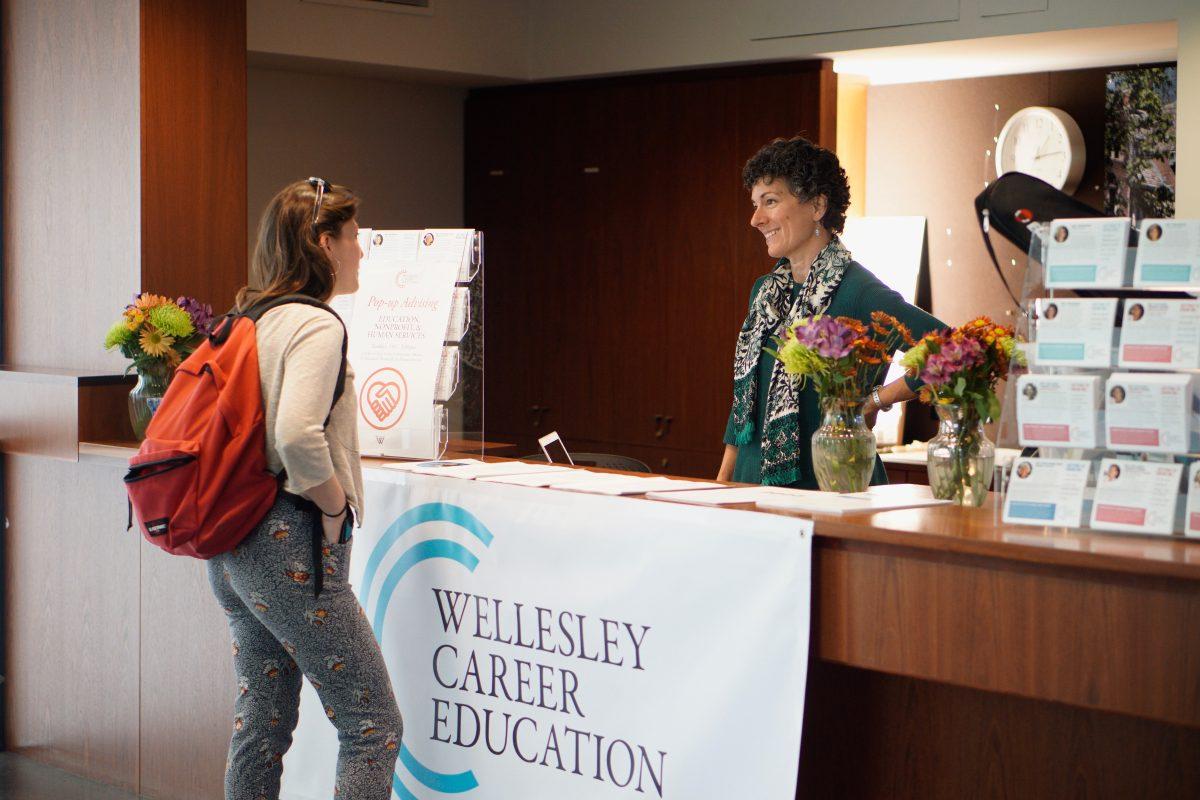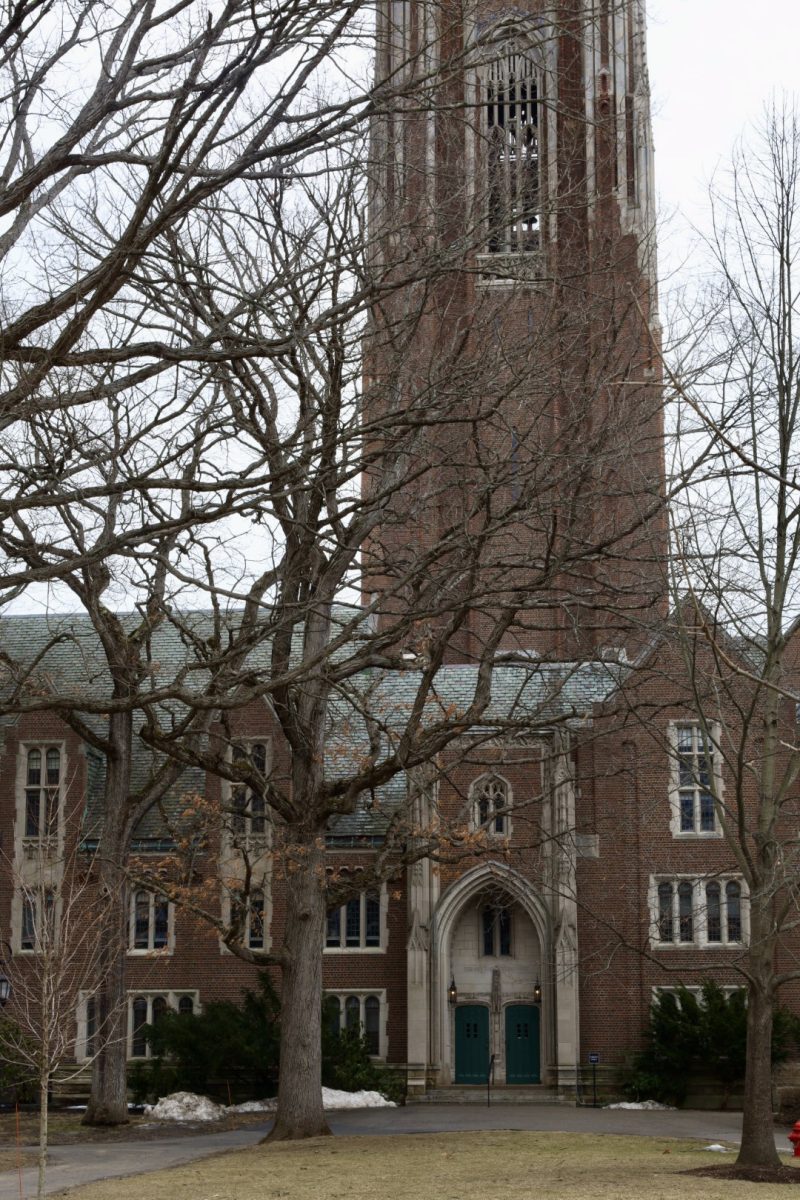Last week, a number of on-campus organizations hosted career and resource fairs for both their club members and the College at large.
On Sept. 27, Wellesley College Democrats held their annual Progressive Activism Fair, billed as an opportunity for students to learn about progressive organizations on campus, internship and job opportunities in the Boston area and other ways to get involved with political and social justice movements. The next day, Mezcla hosted a resource fair focused on connecting students with resources on campus.
The Progressive Activism Fair featured a number of outside organizations. Change Corps, an organization founded over 20 years ago, offers year-long training on organization and social activism. Also featured were two local and state election campaigns—Jackie Katz for State Senate and Ayanna Pressley for City Council. With elections coming up on Nov. 7, these representatives sought interns and fellows for their respective campaigns.
Alison Carey ’20, secretary for the Wellesley College Democrats, believes that the fair is a “way to offer resources to people on campus who are seeking out outlets for their political frustration, or are interested in getting involved in politics in Massachusetts and in their own communities.”
The Wellesley Environmental Science program, Civic Engagement and Wellesley Against Mass Incarceration (WAMI) co-sponsored the event, and several representatives from each group spoke to participants. WAMI, a new organization whose initiatives include a “Prison Penpal” program, drew large crowds from those interested in criminal justice reform.
Carey believes that the Democrats’ event is more geared towards personal passions as opposed to careers. “What we do as an organization as the [Democrats] is try to involve students in a very approachable way, showing them the alternatives to the very traditional paths that aren’t as intimidating,” she says.
Planning for this event began at the beginning of the summer. The Progressive Activism Fair traditionally kicks off Progressive Activism Month, which was expanded recently from its previous weeklong residency.
The next day, Mezcla held its Resource Fair in Acorns House. Mezcla focused more on the resources that could be found at Wellesley, such as the Office of Religious and Spiritual Life, Career Education, Health Services, the First Gen Network and the Stone Center. Employees from the various outlets as well as student representatives spoke to Mezcla and members of the community at large.
Carla Aguilar Jerez ’19, vice president of Mezcla, altered the layout of the event so that attendees and representatives could maximize face time and allow for more personal interactions. Each group met with five or six representatives from the departments and had the opportunity to ask questions about resources and learn about services and events.
Jerez says, “Most Latinx students just aren’t used to having the amount of resources here at Wellesley, so there’s a disconnect of feeling like they can actually go and visit these resources. And because these resources don’t have people going, they don’t know how to make themselves available to us. Mezcla wanted to start working towards building those relationships.”
Unlike the Democrats, however, Mezcla focused on providing academic and professional resources from within Wellesley to its members. According to Jerez, Latinx students are the most likely to go on leave due to a lack of support from the College, so Mezcla’s event is held at the beginning of the year to let both new and returning students know about the variety of resources on campus.
In the coming years, Mezcla hopes to expand with other organizations and resources represented at the event. Financial Services and student organizations were both absent from the resource fair for a variety of reasons. The Pforzheimer Learning and Teaching Center (PLTC) was unable to send any representatives, but did leave Mezcla resource flyers and information to pass along to the fair attendees.
Neither the WC Democrats nor Mezcla characterized their event as a career fair. Carey called the Progressive Activism Fair an “opportunity fair,” while Aguilar referred to Mezcla’s event as a “resource fair.” Both organizations see their events as working in conjunction with other college services. Mezcla’s direct involvement with Career Education and the First Gen Network clearly indicates that particular connection, but the Democrats believe that their opportunity fair provides alternative opportunities—in the nonprofit sector, humanitarian causes and volunteer efforts—which Career Education might not invite to their own political career fairs.
Career Education has been promoting its own events as well. Last week, Career Education hosted the Technology Career Fair and will be hosting the Government, Law, and International Affairs Career Fair on Wednesday, Oct. 4 from 12:30 p.m. to 3 p.m. in Tishman Commons. These fairs are common throughout the year, with iterations in both the spring and the fall.
Erin Konkle, program director of Civic Engagement, says that “while some Career Education events do address the needs of specific student populations (i.e. Career Fair for a specific Career Community), Career Education is committed to supporting every Wellesley student.”
Both Carey and Jerez did express a desire for Career Education and other resources to reach out to their organizations more in order to help those who want to become more politically involved or are Latinx. Jerez states, “I think the College could be doing more. I know that they are always trying to do more, but it doesn’t always feel like they’re reaching out. It feels like they’re trying to reach out to the wider campus, and that feels like they’re not looking for us specifically.”






